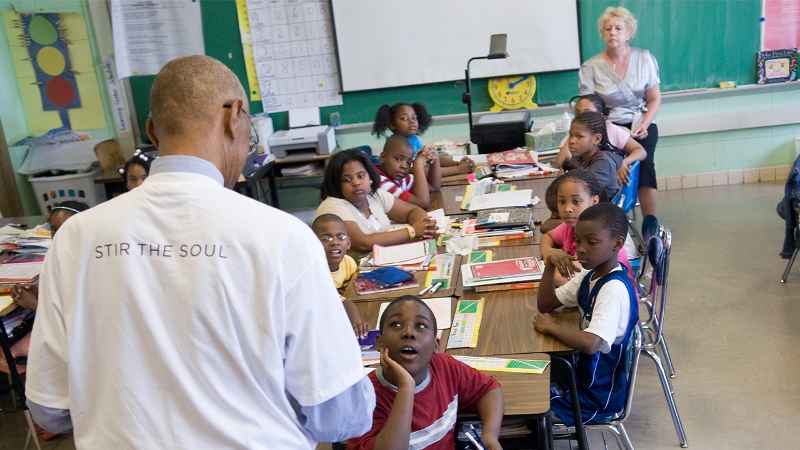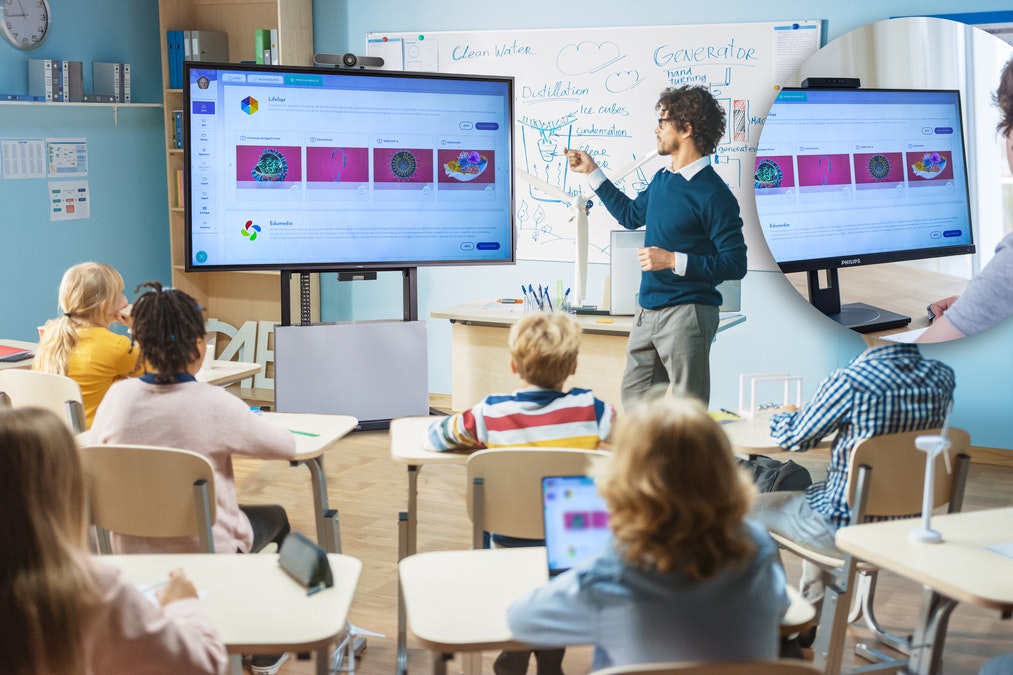Exploring the Different Mentor Methods in Main Scientific Research Education Today
Inquiry-based knowing, hands-on experiments, and the integration of innovation are redefining exactly how teachers involve young minds. Additionally, collective strategies and set apart guideline are being employed to cater to the diverse demands of trainees, improving both interaction and understanding.
Inquiry-Based Knowing
Inquiry-Based Knowing (IBL) is a pedagogical method that motivates students to explore clinical ideas via wondering about, examination, and hands-on trial and error. This technique highlights the duty of pupils as energetic participants in their discovering, advertising important thinking and problem-solving abilities. By involving with real-world concerns, students come to be determined and interested, which boosts their understanding of scientific principles.
In IBL, educators act as facilitators, directing trainees as they navigate their questions as opposed to delivering details directly. This student-centered approach permits for differentiation, accommodating numerous discovering paces and designs. Trainees create skills in creating hypotheses, developing experiments, and analyzing information, which are vital for scientific proficiency.
Furthermore, IBL fosters partnership amongst trainees, urging them to share concepts and findings. This collective query promotes social abilities and a sense of area within the classroom. In addition, the process of questions encourages strength, as pupils discover to embrace failing as a tipping stone towards understanding.
Hands-On Experiments
Hands-on experiments are a vital component of reliable science education and learning, matching the principles of inquiry-based discovering. These experiments permit students to engage straight with scientific concepts, promoting a deeper understanding with experiential knowing. By adjusting products and observing end results, young students can grasp abstract concepts in substantial means.
Such activities promote important reasoning and analytic abilities, as students hypothesize outcomes, conduct experiments, and examine outcomes. This procedure urges them to ask inquiries, refine their understanding, and create a clinical attitude. Furthermore, hands-on experiments can be tailored to diverse understanding designs, making certain that all pupils have the possibility to involve meaningfully with the content.
Furthermore, hands-on experiments commonly encourage cooperation amongst peers, promoting team effort and communication abilities. Working in groups makes it possible for students to share ideas, discuss searchings for, and gain from each other, which boosts their total instructional experience.
Integrating hands-on experiments into the key science curriculum not just enhances the learning setting however likewise cultivates a long-lasting interest in science. By proactively taking part in their education, pupils are extra likely to create an interest for scientific questions that extends past the class.

Modern Technology Integration
Integrating innovation right into main science education has ended up being significantly important in promoting student engagement and enhancing learning outcomes. Using electronic devices, such as interactive simulations, digital laboratories, and instructional software, offers trainees with possibilities to check out clinical ideas in ingenious methods. These resources promote a much deeper understanding of intricate topics by enabling learners to imagine and control variables that would be impractical in a standard class setting.
Furthermore, technology integration motivates customized learning experiences. Students can proceed at their very own speed, taking another look at difficult click this link ideas through multimedia sources, which satisfy various learning styles. This flexibility not only sustains individual growth yet likewise grows a feeling of freedom in learners.
In addition, modern technology works as a bridge to real-world science, connecting students with present research and specialist payments. Access to online data sources and scientific journals expands pupils' viewpoints on scientific questions and promotes essential believing abilities.
Collaborative Discovering
Collaborative learning plays an essential function in primary scientific research education by promoting teamwork and interaction abilities among pupils. This method encourages students to collaborate, share expertise, and participate in analytic, which improves their understanding of clinical concepts. By taking part in team tasks, students discover to express their ideas, pay attention to diverse perspectives, and discuss remedies, all of which are important abilities in both scholastic and real-world contexts.

Research suggests that joint knowing can bring about enhanced inspiration and interaction in scientific research topics, as students discover pleasure in common experiences (primary science tuition Singapore). Furthermore, this method prepares students for future collective ventures, outfitting them with the abilities click for more necessary for effective team effort in greater education and learning and specialist environments. Eventually, welcoming joint knowing in main scientific research education and learning can considerably enhance the discovering experience and advertise a much deeper understanding of clinical inquiry
Set Apart Guideline

Differentiated direction can manifest in numerous ways, such as varying the material, procedures, or products of understanding. As an example, teachers may utilize tiered assignments that offer differing levels of complexity, permitting pupils to operate at their particular preparedness levels. Additionally, versatile organizing strategies can help with partnership amongst trainees with various abilities, fostering peer knowing.
Evaluation plays a vital function in this technique, as it informs direction and assists teachers comprehend each trainee's special demands. Formative assessments, such as quizzes and observations, can guide instructors in changing their techniques to improve discovering outcomes. primary science tuition Singapore. Ultimately, by executing distinguished direction in primary science education, instructors can cultivate a more equitable and reliable discovering setting, equipping all students to reach their complete possibility in recognizing scientific sensations
Verdict
In recap, the diverse teaching approaches in key scientific research education and learning, including inquiry-based learning, hands-on experiments, modern technology assimilation, collective learning, and set apart instruction, jointly add to an extra efficient learning environment. These methods advertise crucial reasoning, analytical skills, and a deeper understanding of scientific principles. By executing these approaches, teachers can create supportive and appealing class that deal with the diverse requirements of trainees, ultimately promoting a lifelong rate of interest in scientific research and enhancing academic success.
Inquiry-Based Learning (IBL) is an instructional strategy that encourages pupils to explore clinical principles with questioning, investigation, and hands-on trial and error.Collaborative understanding plays a crucial click duty in primary scientific research education and learning by fostering team effort and communication skills amongst pupils.Study indicates that collective discovering can lead to boosted inspiration and engagement in science subjects, as trainees locate satisfaction in common experiences.In cultivating an inclusive knowing atmosphere, set apart instruction arises as a key technique to fit the varied demands and capacities of pupils in main scientific research education. Ultimately, by carrying out set apart guideline in primary scientific research education, instructors can cultivate a more equitable and reliable discovering setting, equipping all trainees to reach their complete potential in understanding clinical sensations.
Comments on “Personalized Primary Science Tuition Singapore to Cater to Your Child’s Needs”